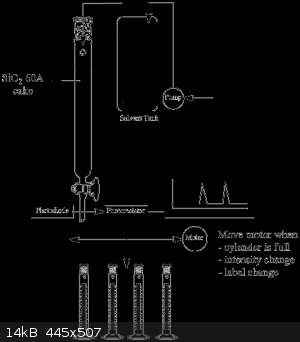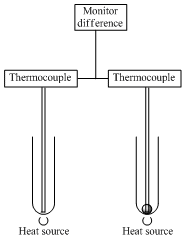Photonic
Harmless

Posts: 36
Registered: 29-5-2016
Member Is Offline
Mood: No Mood
|
|
Open source hardware projects
What's everyone working on as far as hardware?
I would like to contribute some of my time to some hardware design. Particularly open source test equipment, process systems and so forth.
What I can contribute:
3D Modeling (Solidworks)
PCB and Electrical Design (Altium)
UI Design and Development (Qt Framework)
Embedded Software Design (C/C++)
Documentation (MIL-STD-498, and similar)
My background is in electrical engineering. I am employed professionally as an engineer.
I am not looking to duplicate easily accessible technology i.e. hotplates, something generic made "IoT", etc. I prefer to work on things that may be
well outside the range of accessibility. I have been looking at vapor pressure measurement systems, viscometers, mass flow controllers, gas testing
systems, and general test equipment of that nature.
My goal is bring some of this equipment within the reach of the amateur community. i.e. give back what I can to further the community. I am looking to
join other individuals of whom have professional qualifications and/or experience with strong motivations and enthusiasm for a project.
|
|
|
Ubya
International Hazard
    
Posts: 1247
Registered: 23-11-2017
Location: Rome-Italy
Member Is Offline
Mood: I'm a maddo scientisto!!!
|
|
i'm a chemistry student, i don't have a professional background in anything, i just like building stuff. usually i try to not reinvent the wheel but i
try to simplify an existing design and use common items for my projects.
i'm pretty busy right now (have been for 3 years thanks to university) but given the time and some space (small home in a condominium) i'd like to
work on many projects.
PCR machine, diffusion vacuum pump, compressor phase change cooler for cold traps and water cooling, UV-vis spectrophotometer, x-ray imaging,
thermocouple vacuum gauge, and out of madness i'm looking now at how an NMR spectrometer works to simplify it as much as possible but still get useful
data.
i just study the theory online and copy, adapt and mix existing versions that have already been done .
---------------------------------------------------------------------
feel free to correct my grammar, or any mistakes i make
---------------------------------------------------------------------
|
|
|
Photonic
Harmless

Posts: 36
Registered: 29-5-2016
Member Is Offline
Mood: No Mood
|
|
I actually just designed and built a very high resolution ethernet based thermocouple system with PID outputs. (Working on a write up right now). It
might actually be a good candidate for a basis upon making a PCR, and I am certainly interested in a thermocouple vacuum gauge as well as a
thermocouple based mass flow sensor.
I do have a diffusion pump, and a vacuum system, as well as a thermocouple vacuum gauge for comparison so this would be a project I myself would also
be interested in.
|
|
|
brubei
Hazard to Others
  
Posts: 188
Registered: 8-3-2015
Location: France
Member Is Offline
Mood: No Mood
|
|
Hello, i have some idea for you.
I am an organic chemist and some of this stuff are typical instruments needed in a lab and not affordable for amateurs or just "poor lab"
1st : Automation for chromatographic colum
Chromatography column often use plenty of test tubes to separate compounds. To do this you have to stay hours while watching your material purifying
drop to drop. Test tubes have to be changed manually every 1 minute that let you no time to do anything else.
Filling solvent and distributing product can be managed automatically easily
Other upgrade is setting a detector at the end of the column. UV LED and UV sensitive resistor (or Infrared) can easily detect a compound that is
passing through, because many organic compound are not transparent to UV. Then the separation of the compounds are easy monitored.

Typical column can be found here
https://www.ebay.com/itm/100ml-24-40-Glass-Chromatography-Co...
-------
If you like thermocouple, here is a second very interesting lab instrument
Differential scanning calorimetry coupled with thermogravimeter
TGDSC is usually used to study the behavior of a sample when heated. Typically, losing CO2, H2O, phase transition, melting
2 test tube are gently heated with exact heat source from room temperature to X00°C, one of them contain a sample of your product. When the product
is losing CO2 (i.e CaCO3) via a endothermic reaction, you are able to measure the quantity of energy absorbed comparison of the 2 thermocouple
potential. You can make many observations.

Coupling this with a weight scale is more difficult.
[Edited on 15-4-2019 by brubei]
I'm French so excuse my language
|
|
|
Photonic
Harmless

Posts: 36
Registered: 29-5-2016
Member Is Offline
Mood: No Mood
|
|
Quote: Originally posted by brubei  |
If you like thermocouple, here is a second very interesting lab instrument
Differential scanning calorimetry coupled with thermogravimeter
|
I think I can actually perform these tests right now. At least with a relatively simple code modification of my system. What could I simulate this
reaction with so I can do some testing? Anything OTC/easily obtainable endothermic analog that would decompose in a buffer?
|
|
|
Ubya
International Hazard
    
Posts: 1247
Registered: 23-11-2017
Location: Rome-Italy
Member Is Offline
Mood: I'm a maddo scientisto!!!
|
|
Quote: Originally posted by brubei  | Hello, i have some idea for you.
I am an organic chemist and some of this stuff are typical instruments needed in a lab and not affordable for amateurs or just "poor lab"
1st : Automation for chromatographic colum
Chromatography column often use plenty of test tubes to separate compounds. To do this you have to stay hours while watching your material purifying
drop to drop. Test tubes have to be changed manually every 1 minute that let you no time to do anything else.
|
like an autosampler, a test tube holder in the shape of a disk (so only 1 axis and a rotary action is enough) with the holes in a spiral pattern, or
simply concentric circles. a servo to rotate the disk and one to move the entire disk radially under the column (to change rows), a timer and done
---------------------------------------------------------------------
feel free to correct my grammar, or any mistakes i make
---------------------------------------------------------------------
|
|
|
brubei
Hazard to Others
  
Posts: 188
Registered: 8-3-2015
Location: France
Member Is Offline
Mood: No Mood
|
|
Quote: Originally posted by Ubya  | | like an autosampler, a test tube holder in the shape of a disk (so only 1 axis and a rotary action is enough) with the holes in a spiral pattern, or
simply concentric circles. a servo to rotate the disk and one to move the entire disk radially under the column (to change rows), a timer and done
|
I'd love to learn arduino to build this. 
Quote: Originally posted by Photonic  |
I think I can actually perform these tests right now. At least with a relatively simple code modification of my system. What could I simulate this
reaction with so I can do some testing? Anything OTC/easily obtainable endothermic analog that would decompose in a buffer? |
- Copper sulfate hydrate deshydration
Reference : https://www.mt.com/in/en/home/supportive_content/matchar_app...
- Mg(OH)2 to MgO
- CaCO3 to CaO
- Aminoacid decarboxylation (popular reaction here)
- Metal oxyde reduction with Carbon (N2 atmosphere)
- Various oxydation with 100% O2 atmosphere
- Organic or mineral salt metling and resolidifying, or Lead
- Thermite 
Good isolation of the apparatus is very important
Sample usually weight some mg (~10mg)
Heating speed is about 1°C per 2 sec
Controlled atmosphere is sometime needed (especially with redox reaction)
If the measure are good we can recalculate any Enthalpy of reaction.
[Edited on 15-4-2019 by brubei]
I'm French so excuse my language
|
|
|